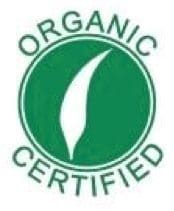A NEW organic certification mark launched this week aims to consolidate various organic symbols into a single, easy-to-identify consumer label, and simplify the regulatory and certification process.
 The Organic Industry Standards & Certification Council and the Organic Federation of Australia say the new ‘Certified Organic’ mark, pictured, is the culmination of 12 years of discussion and two years of development work.
The Organic Industry Standards & Certification Council and the Organic Federation of Australia say the new ‘Certified Organic’ mark, pictured, is the culmination of 12 years of discussion and two years of development work.
“Like the USDA Organic and EU Organic seals, this logo will become the international trademark for organic certified product from Australia,” Organic Federation of Australia chairman, Adam Willson said.
The National Organic Mark will be available for use from today, for any organic business that is certified through one of Australia’s six nationally accredited certifiers. These include Ausqual, Australian Certified Organic, Demeter, NASAA Certified Organic, Organic Food Chain and Safe Food QLD.
“The reason that OFA has been lobbying so hard for the National Organic Mark is that we know how important it will be for making certified organic supply chains more efficient,” Mr Willson said.
Firstly, it would reduce certification costs, he said.
“Many organic producers and processors have multiple certifications if they wish to access different country markets. Examples of this include the US National Organic Program (NOP) and Japan’s JAS program, while South Korea, China and EU each of their own programs.”
“Each of these certifications not only cost money, but ties up the businesses with audits for days on end.”
“This time away from their business comes at a significant cost. With the National Organic Mark now in place, Australia can begin the process of getting equivalencies with each of our trading countries,” Mr Willson said.
“This is an acceptance of each country’s organic standards. This will mean that once an equivalency is in place, the operator will only have to be certified with one of the six certifying bodies accredited to the Federal Government to gain access to export markets.”
Currently the South Korean equivalency is nearing completion, the China equivalence has begun side-by-side analysis and the US and Australian governments have begun discussions.
“This is good news for Australian organic businesses,” Mr Willson said.
Up to now, Australian exporters wanting access to Asian markets have needed to be certified through the US National Organic Program (NOP), JAS or EU.
“Countries throughout Asia recognise these government-endorsed National Organic Marks, and by adopting other countries’ logos, we are in effect marketing their products,” Mr Willson said.
“The Australian National Organic Mark will create a new impetus for consumers wanting food from the cleanest continent in the world.”
Giving consumers a single logo to look for
The Mark will be allowed for use on products/goods containing 95pc and above certified organic ingredients.
As more national supermarkets and leading Australian organic retailers adopt the National Organic Mark, consumers would become more aware of organic food and the industry was more likely to flourish, Mr Willson said.
“Rather than looking for one of six certification logos now in use, the consumer will be directed to a single symbol. When the US introduced its uniform National Seal in late 2002, the industry grew to $US43.3B by 2015 – a year-on-year growth of 13.4pc.
“If the Australian organic market is worth $2 billion in 2016, this means the organic industry could grow to at least $3.3B by 2020,” he said.
Protecting the word, ‘organic’
The introduction of the National Organic Mark would also help improve the legislative environment to protect the organic industry, Mr Willson said.
“The new Mark is a Certification Trade Mark, underpinned by the Australian Competition and Consumer Commission. This is the first step in recognising the word organic and protecting the industry against fraud,” he said.
Key points regarding the use of the National Organic Mark:
- It can only be used on Certified Organic Products that comply with the National Organic Standards – the same as the USDA National Organic Program (NOP)
- It is Voluntary and free to use – the same as the USDA NOP
- It can be applied to products under equivalency – eg Korean Government Approved Certification bodies can allow their operators to use the Mark on organic produce (the same as the USDA NOP).
- The Mark is strictly controlled and all certifiers must report annually on the number of operators applying the Mark (the same as the USDA NOP)
- The Certifiers must enter into a license agreement with each operator before the Mark can be applied to any products
The National Organic Mark is owned by OISCC and registered as a trademark through IP Australia. It will shortly be approved as a CTM by the ACCC. The complete rules for use can be accessed here.
Certified Organic beef or lamb producers interested in applying the National Organic Mark to product labels can contact their certifier to begin the process.



To clarify – the Organic Mark is to be used in conjunction with the existing Certifiers logo